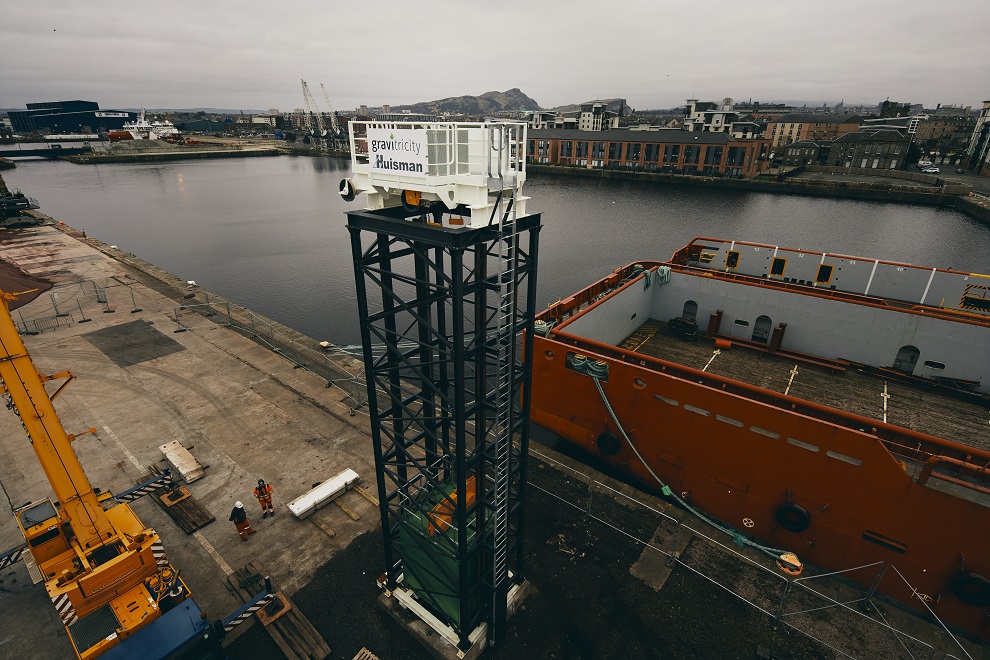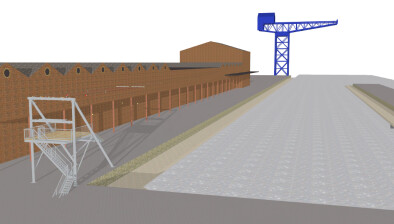And finally… Edinburgh project to store renewable energy using gravity
A ground-breaking project to store renewable energy using gravity is taking shape in Edinburgh.

The £1 million demonstration project – at Forth Port’s Prince Albert Dock – is being developed by Gravitricity, a Leith based start-up which aims to use underground shafts and massive weights to store large amounts of energy.
Its 250kW demonstrator comprises a 15-metre high lattice tower, two 25-tonnes weights suspended by steel cables, plus two fully grid-connected generator units.
“The tower and top frame were installed in perfect weather conditions last week,” explains Frances Tierney, engineering project manager.
“This week our focus is installing the electrical connection to the winch container, with the goal of being fully commissioned by April.”
During the test phase, the Gravitricity team will begin by lowering the weights together to generate full power and verify their speed of response.
“Our full scale projects will operate underground – but for this scale demonstator we’ve build an above-ground structure,” Frances says.
“We calculate we can go from zero to full power in less than a second – which can be extremely valuable in the frequency response and back-up power markets.
“We’ll then run tests with the two single weights, dropping one after the other to verify smooth energy output over a longer period, alongside a programme of other tests to demonstrate and refine the full capabilities of the system.
“This two-month test programme will confirm our modelling and give us valuable data for our first full-scale 4-8 MW project which will commence later this year,” Frances concludes.
The demonstrator’s lattice tower has been fabricated by ESL engineers in Hull.
Other key components including the base frame and weight baskets have been made by AJS Fabrication in Fife.
The system’s custom-built winches and control modules have been made by international winch specialists Huisman, who are Gravitricity’s long-term partners.
Gravitricity has also been working with Glasgow based Industrial Systems and Control (ISC) on controls and simulations.
The project is supported by a £640,000 grant from UK Government funder Innovate UK.













